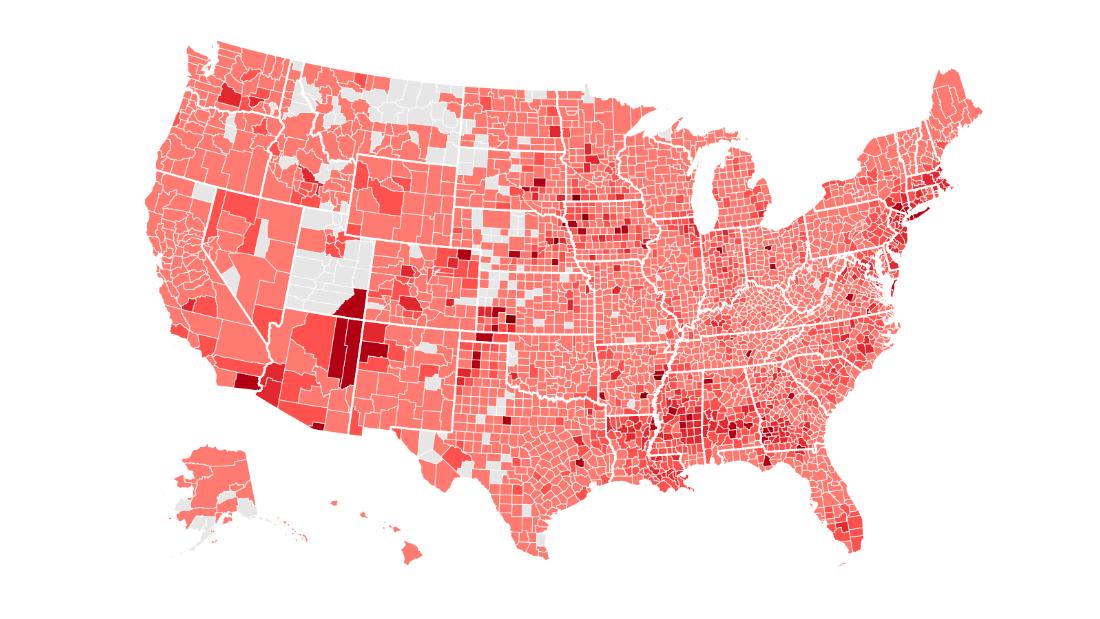US saw highest single day of new COVID-19 cases
From CNN’s Dave Alsup and Joe Sutton
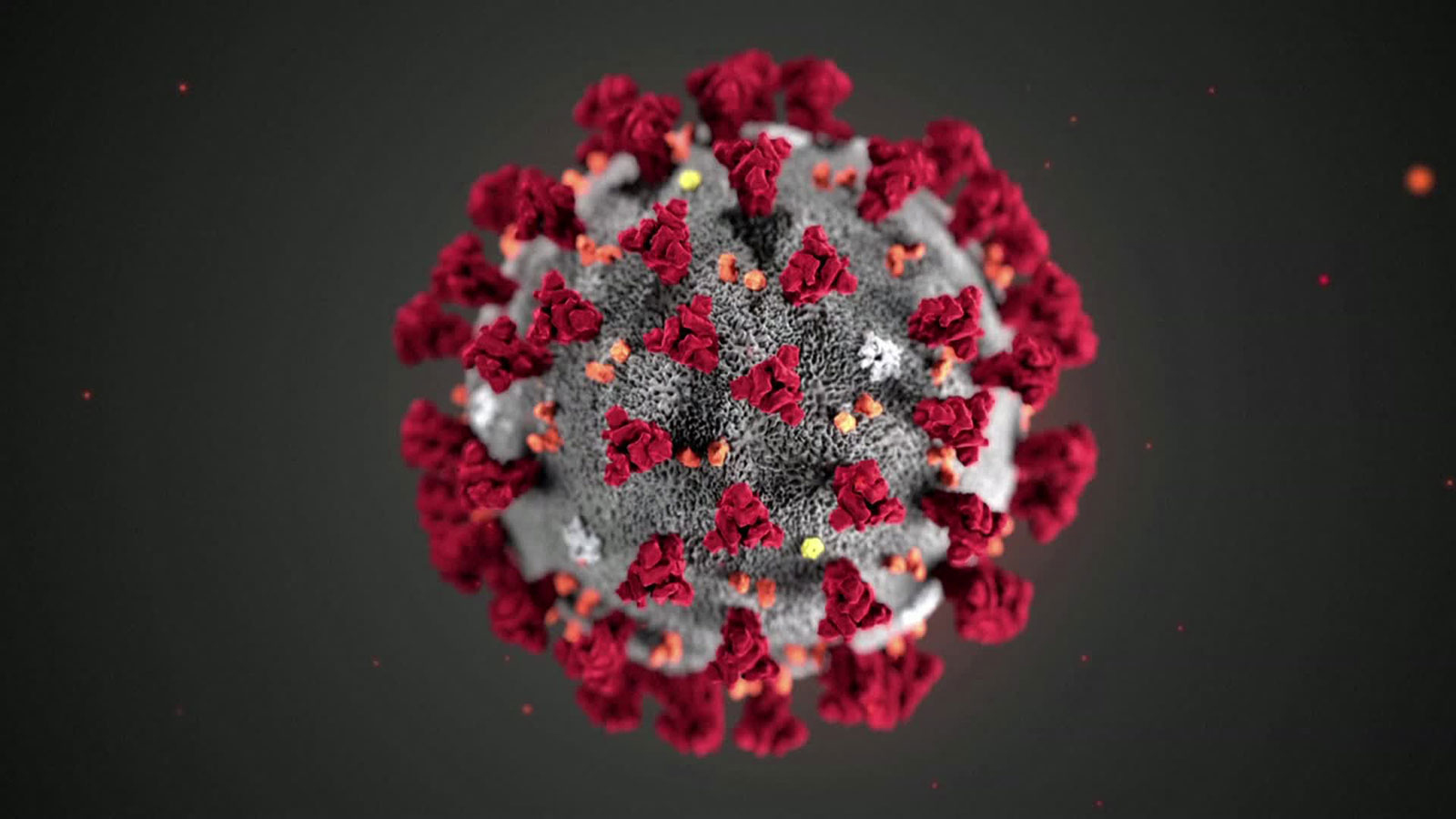 This illustration, created at the Centers for Disease Control and Prevention (CDC), reveals ultrastructural morphology exhibited by coronaviruses. Centers for Disease Control and Prevention (CDC)
This illustration, created at the Centers for Disease Control and Prevention (CDC), reveals ultrastructural morphology exhibited by coronaviruses. Centers for Disease Control and Prevention (CDC)The United States saw a record number of new coronavirus cases in a single day on Wednesday, with 50,203 new infections reported, according to Johns Hopkins University.
There are at least 2,685,806 cases of coronavirus in the U.S., according to the university.
Wednesday’s total eclipses the previous high of new US cases reached on June 26, when 45,255 new coronavirus cases were reported across the country, according to Johns Hopkins data.
CNN is tracking US coronavirus cases here:
Mexico overtakes Spain in Covid-19 death toll
from CNN's Matt Rivers and Karol Suarez
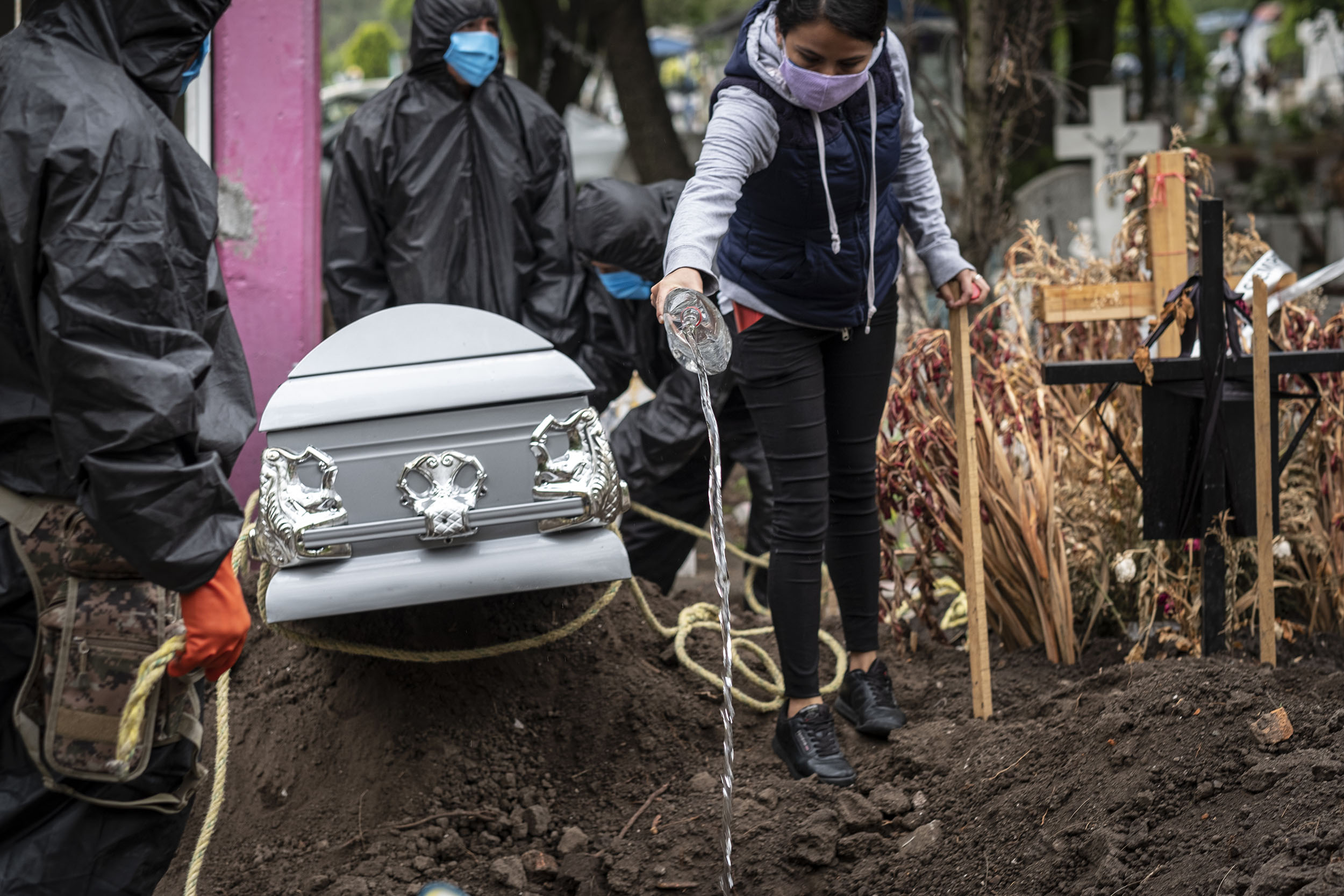 A woman wearing a face mask pours holy water into a grave during the funeral of a COVID 19 death victim at the San Isidro cemetery in Mexico, on June 24. Jacky Muniello/picture-alliance/dpa/AP
A woman wearing a face mask pours holy water into a grave during the funeral of a COVID 19 death victim at the San Isidro cemetery in Mexico, on June 24. Jacky Muniello/picture-alliance/dpa/AP Mexico's coronavirus death toll surpassed Spain's on Wednesday, according to numbers released by the Mexican Health Ministry.
Mexico reported 741 new deaths in the past 24 hours, bringing its death toll to 28,510. Spain's total number of fatalities stood at 28,364 on Wednesday evening, according to Johns Hopkins University's tally.
Mexico now has the sixth highest number of Covid-19 deaths in the world.
The Mexican health ministry also reported 5,681 new confirmed cases on Wednesday, bringing the total number of cases to 231,770.
Coronavirus cases continue to rise in double digits in Victoria, Australia
From CNN’s Angus Watson
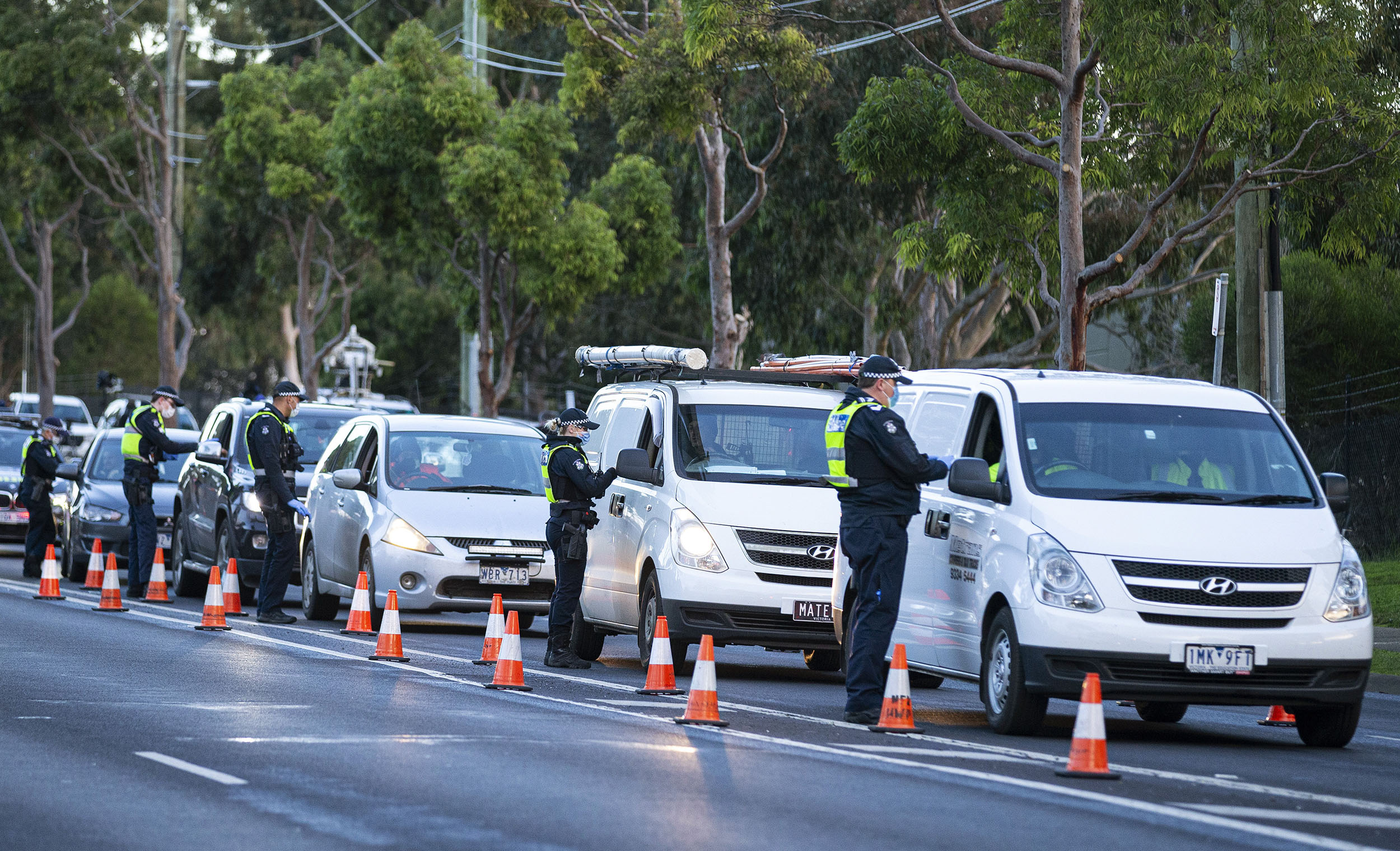 Police check drivers at a roadblock in Melbourne, Australia, on Thursday, on July 2. Daniel Pockett/AAP Image/AP
Police check drivers at a roadblock in Melbourne, Australia, on Thursday, on July 2. Daniel Pockett/AAP Image/APThe Australian state of Victoria recorded 77 new coronavirus cases on Wednesday, its 17th consecutive day of double-digit growth in new infections.
The majority of the cases detected on Wednesday were in the 10 "hot zone" suburbs around Melbourne, where 300,000 people have been ordered to stay at home, Victoria's Chief Medical Officer Brett Sutton said Thursday.
Victoria now has 415 active cases, with 20 patients hospitalized and four in intensive care.
All residents in the 10 zones have been encouraged to get tested, regardless of whether they show any symptoms -- and 26,320 tests were conducted on Wednesday.
“There are other infections still to be found out there and they are all a risk of transmitting to others,” Sutton said. “People should be limiting their movement to the fullest extent possible.”
Cuba will partially reopen its capital on Friday
From CNN's Patrick Oppmann
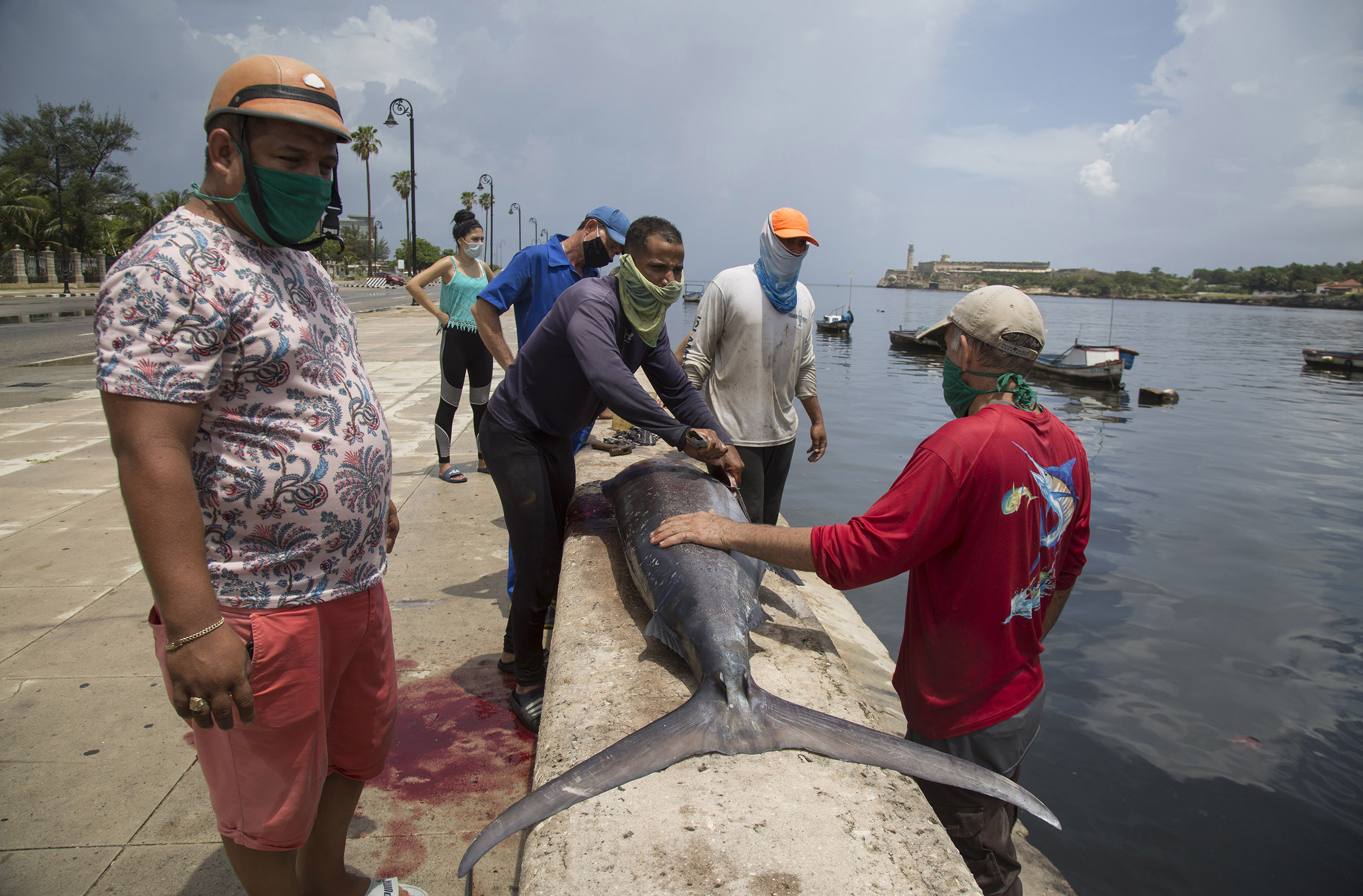 Fishermen wearing protective face masks clean a freshly caught fish while people line up to buy portions of the fish, in Havana, Cuba, on Saturday, June 27. Ismael Francisco/AP
Fishermen wearing protective face masks clean a freshly caught fish while people line up to buy portions of the fish, in Havana, Cuba, on Saturday, June 27. Ismael Francisco/APHavana will begin a partial reopening on Friday, Cuban Prime Minister Marrero Cruz said Wednesday night of the country's capital city.
Cuba closed its borders in March, canceling all regular commercial flights to and from the island, and went under a strict lockdown after three Italian tourists were diagnosed with coronavirus.
But recently it began a gradual easing of restrictions as infections dropped.
The reopening in Havana will allow restaurants, bars and other businesses to reopen but with restricted capacity, the prime minister said. Havana residents will also be able to visit the beach for the first time in nearly three months.
However, international travel to and from most of Cuba will remain suspended.
Cuba's main island, where Havana is located, remains closed to international tourists. Visitors will, however, be able to travel to five offshore islands, which the Cuban government has developed for tourism.
As of Wednesday, the country had recorded 86 deaths and 2,348 cases of coronavirus, according to Cuban health officials.
China reports three new coronavirus cases
From CNN's Shanshan Wang
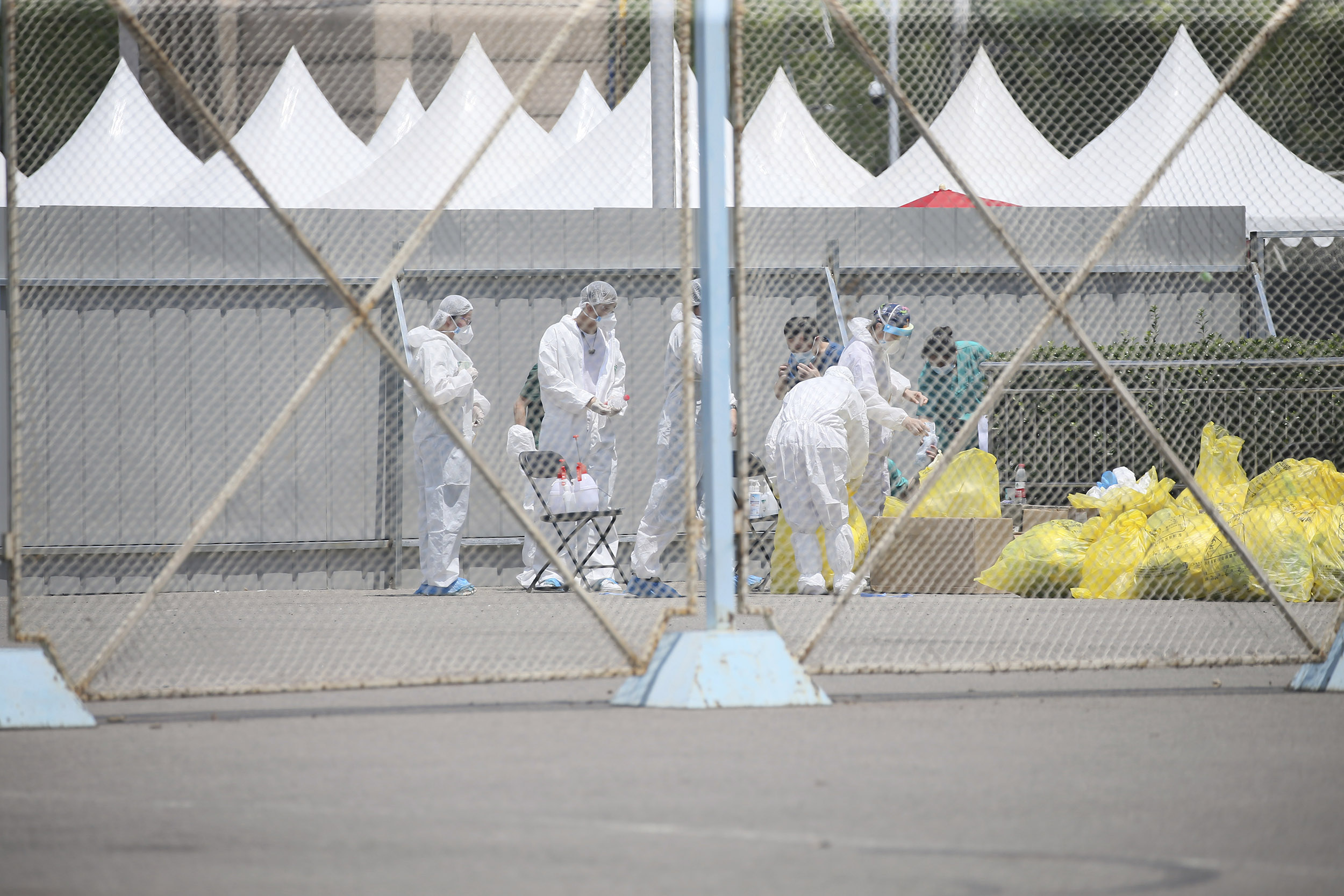 Beijing health authorities wear protective suits while packing disposals after conducting a polymerase chain reaction (PCR) test to detect novel coronavirus infections in Beijing, China, on June 30. The Yomiuri Shimbun/AP
Beijing health authorities wear protective suits while packing disposals after conducting a polymerase chain reaction (PCR) test to detect novel coronavirus infections in Beijing, China, on June 30. The Yomiuri Shimbun/APChina recorded three new coronavirus cases on Wednesday, the country's National Health Commission (NHC) announced today.
Two of the cases were imported. The third was a local transmission in Beijing, where a new coronavirus outbreak emerged from a wholesale food market last month.
The country also reported two new asymptomatic cases on Thursday. Currently, 99 asymptomatic cases are under medical observation in China, among which 60 were imported.
As of Wednesday, China had recorded 83,537 confirmed coronavirus cases and 4,634 deaths.
New Zealand's health minister has resigned after breaching coronavirus lockdown rules
From CNN's Angus Watson and Sol Han
 New Zealand Health Minister David Clark, center, announces his resignation during a press conference on July 2. Mark Mitchell/New Zealand Herald/AP
New Zealand Health Minister David Clark, center, announces his resignation during a press conference on July 2. Mark Mitchell/New Zealand Herald/APNew Zealand's embattled Health Minister David Clark has resigned after a series of political blunders -- including breaching his own government's lockdown rules.
Clark has been under fire since April, when he admitted to breaking the country's stay-at-home order to take his family to the beach.
He had offered his resignation at the time. However Prime Minister Jacinda Ardern did not accept it, saying it could cause a “massive disruption" in the health sector while the country was battling the virus.
Instead, Clark was stripped of his role as associate finance minister and demoted to the bottom of the Cabinet rankings. Last month, he faced another backlash after pinning responsibility for failures at the border on the Director-General of Health Ashley Bloomfield.
On Thursday, Clark again tendered his resignation. This time, it was accepted by the Prime Minister.
New Zealand had 22 active Covid-19 cases as of Wednesday, with one in hospital. In total, it has recorded 1,528 confirmed or probable cases and 22 deaths, according to the New Zealand Health Ministry.
Americans are still reluctant to wear face masks because of mixed messaging early in the pandemic, Fauci says
From CNN's Shelby Lin Erdman
 Anthony Fauci, director of the National Institute of Allergy and Infectious Diseases, wears a protective mask on June 30. Al Drago/Bloomberg/Getty Images
Anthony Fauci, director of the National Institute of Allergy and Infectious Diseases, wears a protective mask on June 30. Al Drago/Bloomberg/Getty ImagesThe “mixed message” about wearing a mask at the beginning of the coronavirus pandemic has contributed to the reluctance of some Americans to wear a face covering now, Dr. Anthony Fauci told NPR in an interview Wednesday.
Americans were first told in February and March not to wear a face mask to protect against Covid-19 transmission as a shortage of personal protective gear for medical works worsened. But by May, health experts -- including Fauci -- reversed course and urged people to wear masks in public to prevent the virus from spreading.
“I think that did have an effect,” Fauci, head of the National Institute of Allergy and Infectious Diseases, told host Mary Louise Kelly.
Fauci admitted the early message to Americans about wearing a mask was “confusing.” Without elaborating, he said there were “many other things” now contributing to why people do not want to wear a face covering.

 5 years ago
633
5 years ago
633 